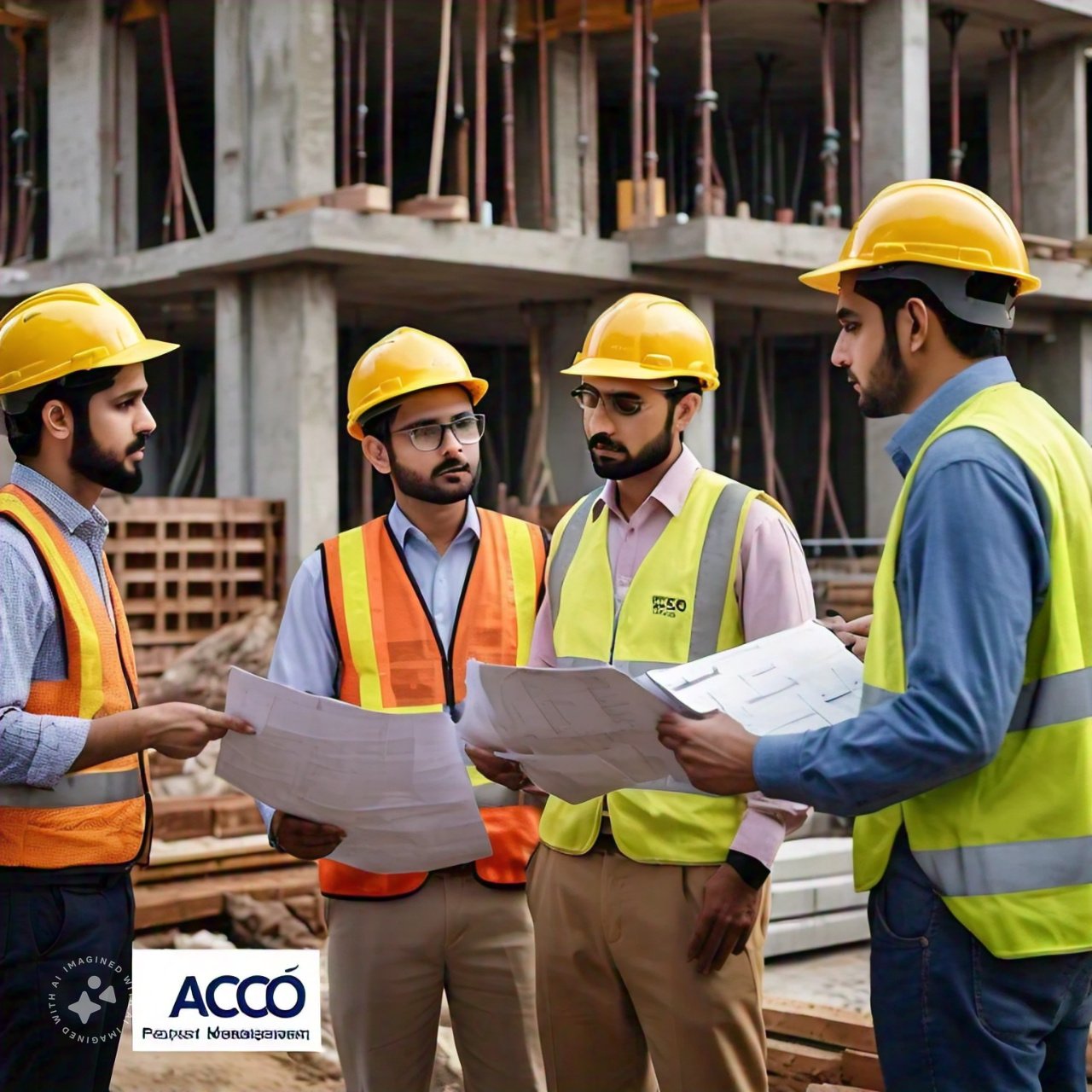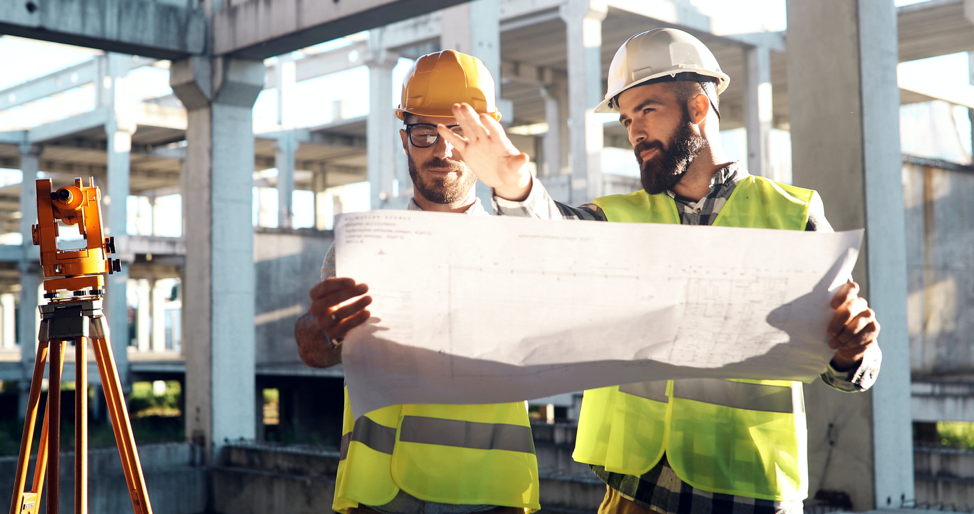
Third party building inspection company

🏢 Third-Party Building Inspection Company in Pakistan – Importance, Services, and ACCO’s Expertise
🏗️ Introduction
In the rapidly evolving construction industry of Pakistan, building safety, structural integrity, and compliance have become more critical than ever. Whether it’s a commercial high-rise, industrial factory, or residential development, stakeholders now rely heavily on third-party building inspection companies to ensure every structure is up to code and safe for use.
This is where ACCO Construction steps in with its comprehensive third-party inspection services that guarantee compliance, safety, and peace of mind for clients across Pakistan.
✅ What is a Third-Party Building Inspection?
A third-party building inspection is an independent assessment carried out by a certified company not directly involved in the construction process. The goal is to verify quality, safety standards, and compliance with local regulations and international best practices.
These inspections cover:
Structural integrity
Material quality
Workmanship
Adherence to design and safety codes
MEP systems (Mechanical, Electrical, Plumbing)
Fire and life safety compliance
Foundation and soil testing
🧱 Why is Third-Party Inspection Necessary in Pakistan?
In Pakistan, rapid urbanization, inconsistent regulation enforcement, and the increasing number of construction projects make third-party inspections not just beneficial—but essential.
🔍 Key Reasons:
Safety Assurance
Prevent building collapses, fire hazards, or faulty structural performance by ensuring sound construction methods.Regulatory Compliance
Many local authorities, including LDA, DHA, and SECP, now require third-party verification for completion and occupancy certificates.Quality Control
An external audit ensures contractors follow specifications, preventing shortcuts in materials or workmanship.Dispute Resolution
Third-party reports serve as an unbiased record in case of conflicts between stakeholders.Investor Confidence
Investors and foreign clients prefer independent quality audits before releasing funds.
🛠️ Types of Third-Party Building Inspections
ACCO Construction offers a wide range of third-party inspection services tailored for diverse sectors:
1. 🏢 Structural Inspection
Includes load-bearing elements, concrete strength, steel reinforcement checks, and foundation safety.
2. ⚙️ MEP Inspection
Verification of HVAC, plumbing, electrical, and fire-fighting systems to ensure design compliance.
3. 🔥 Fire & Life Safety Inspection
Evaluation of fire exits, hydrant systems, fire-resistant materials, and smoke evacuation routes.
4. 🧱 Material Testing
Cement, steel, sand, aggregate, and water testing in certified labs.
5. 📐 Architectural Compliance
Reviewing if construction follows approved architectural and structural drawings.
6. 🌍 Soil and Foundation Testing
Assessing soil bearing capacity, compaction, and geotechnical suitability for the building design.
🧾 Legal Requirements for Third-Party Inspections in Pakistan
Many building control authorities and housing societies mandate third-party inspections. Some examples include:
DHA (Defence Housing Authority) requires structural and electrical inspection certifications before granting occupancy.
LDA (Lahore Development Authority) demands structural stability certificates from approved inspection companies.
SECP and industrial zones like Sundar Industrial Estate require quality audits and fire safety inspections.
PEC (Pakistan Engineering Council) encourages licensed engineers to carry out independent safety checks.
Failure to comply can lead to penalties, project delays, or refusal of completion certificates.
🏗️ Who Can Perform Third-Party Inspections?
Only qualified and registered entities are permitted to offer third-party inspection services.
Approved Inspectors Must Have:
PEC-licensed civil/structural engineers
ISO certification for inspection & testing services
Access to certified labs for material testing
Accreditation from local authorities like DHA, LDA, or CDA
Experienced personnel with technical expertise in building construction and engineering
🏢 ACCO Construction – Your Trusted Third-Party Building Inspection Company
👷 About ACCO
With over 20 years of experience, ACCO Construction is a leading construction, design, and engineering company in Pakistan. We are proud to offer certified third-party inspection services for all types of construction projects:
Residential buildings
Commercial plazas
Industrial factories
Hospitals & healthcare buildings
Educational institutions
Warehouses & logistics centers
🌟 Why Choose ACCO for Third-Party Inspection?
✅ 1. Certified & Licensed
ACCO is registered with:
Pakistan Engineering Council (PEC)
Punjab Revenue Authority
SECP
Approved in multiple housing societies including DHA, LDA, Bahria Town.
✅ 2. Skilled Team of Engineers
Our inspections are led by qualified structural engineers, architects, and MEP professionals with decades of combined experience.
✅ 3. State-of-the-Art Testing Labs
We collaborate with ISO 17025 accredited laboratories for reliable material testing results.
✅ 4. Detailed Reports with Recommendations
We provide comprehensive reports, including images, site visit logs, test results, and corrective action plans.
✅ 5. Quick Turnaround
Get your inspection report within 3-5 working days, allowing you to proceed without delays.
🧪 Key Inspection Services Offered by ACCO
| Service | Description |
|---|---|
| 🔍 Structural Safety Audit | Full check of beams, columns, slabs, footings, and roof trusses |
| 🔧 MEP Compliance | Plumbing, electrical, HVAC systems checked for safety and code compliance |
| 🧱 Material Testing | Cement, steel, bricks, concrete cube testing |
| 🔥 Fire Safety Audit | Checking fire alarms, extinguishers, escape routes |
| 🧭 Soil & Geo Testing | Soil investigation reports with bore logs |
| 📝 As-Built Drawing Verification | Ensures construction aligns with approved plans |
| 🏢 Building Stability Certificate | Issued after structural and safety inspections |
🏭 Industrial Building Inspection by ACCO
🔍 Factory & Warehouse Inspections
We provide third-party inspection services for:
PEB (Pre-Engineered Buildings)
RCC framed industrial buildings
Steel fabrication & installation
Utility service inspections
We inspect erection methods, welding quality, load-bearing structures, and emergency compliance to ensure long-term operational safety.
📄 Structural Stability Certificate – What Is It?
A Structural Stability Certificate is issued after a complete structural inspection certifying that the building is safe, stable, and fit for occupancy.
🔹 When is it Required?
Before occupying a new building
For building approval in DHA, LDA, Bahria
For old buildings undergoing renovations
For insurance and bank financing purposes
At the time of resale or tenant agreements
🔹 Who Issues It?
Only PEC-licensed structural engineers or third-party companies like ACCO are authorized to issue this certificate.
🔗 Internal Links (for your website)
🌐 External Links
📞 Get in Touch with ACCO
Interested in our third-party inspection services? Contact us today to schedule a site visit or receive a quotation tailored to your project.
📍 Office 2, 3rd Floor, Bigcity Plaza, Gulberg-III, Lahore
🌐 Website: www.acco.com.pk
📧 Email: info@acco.com.pk
📞 Call/WhatsApp: 0322-8000190
🎯 Conclusion
Hiring a third-party building inspection company in Pakistan is no longer optional—it’s a vital step to ensure structural safety, legal compliance, and quality assurance. With ACCO Construction, you gain more than just an inspection service—you gain a partner in quality and safety.
Whether you’re constructing a new facility or renovating an old one, trust ACCO for expert third-party inspections, structural stability certification, and peace of mind.

🏗️ Structural Integrity: The Backbone of Safe and Reliable Construction
🔍 Introduction to Structural Integrity
Structural integrity refers to the ability of a structure—be it a building, bridge, factory, or infrastructure system—to withstand its intended load without failure due to fracture, deformation, or fatigue. It ensures the safety, durability, and functionality of buildings and is a fundamental aspect of civil engineering and construction practices.
In simple terms, structural integrity is what prevents buildings from collapsing under pressure, vibrations, environmental impacts, or natural disasters like earthquakes. For engineers, architects, and builders, maintaining structural integrity is not a one-time task but a continuous process that begins in the design phase and lasts throughout the building’s lifespan.
🛠️ Why Structural Integrity Matters
1. Public Safety
Buildings with poor structural integrity pose a significant risk to human lives. Structural failures can lead to partial or complete collapse, causing injuries, fatalities, and property loss.
2. Legal Compliance
Municipal development authorities in Pakistan (like LDA, CDA, SBCA) require a Structural Stability Certificate before granting NOCs, especially for factories, warehouses, high-rise buildings, and commercial projects.
3. Insurance & Liability
Structural integrity assessments are crucial for insurance purposes. If a building fails without a certified inspection or safety audit, the owner may be held liable, and insurance claims may be denied.
4. Operational Continuity
For industries, ensuring the stability of factory buildings, storage facilities, and plants is essential to avoid downtime and disruption in operations.
📐 Factors That Affect Structural Integrity
Design & Engineering
Accurate structural calculations
Appropriate material selection
Load-bearing capacity analysis
Construction Quality
Skilled labor
Adherence to engineering drawings
Use of certified materials (steel, cement, concrete)
Material Degradation
Corrosion in steel reinforcement
Cracks in concrete
Wood rot and termite damage
Environmental Conditions
Earthquake resistance
Wind loads
Heavy rain or flooding
Maintenance & Retrofitting
Regular inspections
Strengthening old or damaged structures
Seismic upgrades for older buildings
📄 Structural Stability Certificate in Pakistan
A Structural Stability Certificate is an official document issued by a registered structural engineer or third-party inspection company. It confirms that a building is structurally sound and safe for occupancy.
💼 Who Needs It?
Factories & Warehouses
Educational Institutions
Commercial Buildings
Hospitals
Residential Apartments
Public Use Buildings (Plazas, Malls)
📋 Contents of the Certificate
Description of the structure
Inspection findings
Structural condition assessment
Recommendations for repair (if needed)
Compliance with building codes
Signature and stamp of licensed engineer
🧪 Structural Integrity Testing Methods
1. Visual Inspection
The first step in evaluating a structure’s health. Engineers look for:
Cracks in walls or foundations
Sagging floors or beams
Rusted reinforcements
2. Non-Destructive Testing (NDT)
Techniques that assess internal flaws without damaging the structure:
Ultrasonic pulse velocity
Rebound hammer test
Ground Penetrating Radar (GPR)
Infrared thermography
3. Load Testing
Applying simulated loads to test how the structure reacts under stress.
4. Core Sampling
Extracting material samples from concrete or steel for lab testing.
🧑🔧 Role of Third-Party Inspection Companies
Independent structural inspection firms offer unbiased evaluations and certifications. They help ensure that the construction quality meets national and international standards.
Services Offered:
Structural health audits
Factory compliance inspections
Earthquake risk analysis
Fire safety & evacuation compliance
Post-disaster structural assessments
Why Hire a Third Party?
Objective reporting
Regulatory compliance
Avoid conflict of interest
Certification from registered PEC engineers
🌍 Structural Integrity in the Global Context
Countries around the world have made structural integrity a legal and ethical mandate:
USA: OSHA and FEMA guidelines for buildings and factories
UK: Building Safety Act post-Grenfell disaster
UAE: Mandatory structural audits for commercial buildings
Pakistan: Laws under Building Control Authorities and Industrial Safety Acts
🏭 Case Study: Structural Failure of a Factory in Pakistan
In 2015, a four-story garment factory in Lahore collapsed due to poor structural design and unauthorized additions. Over 45 lives were lost. Investigations revealed:
Overloaded slabs
Unapproved vertical extensions
Absence of structural audit
This tragedy highlighted the importance of regular integrity assessments and adherence to engineering standards.
🏢 ACCO Construction – Ensuring Structural Integrity
ACCO Construction is a pioneer in building inspection, engineering design, and structural certification in Pakistan. We offer:
✅ Our Core Services:
Structural Stability Certificates
Structural Health Assessments
Earthquake Retrofitting Solutions
Factory Compliance Audits
Rehabilitation of Damaged Buildings
🏗️ Specialized Sectors:
Healthcare Infrastructure
Industrial & Factory Units
Educational & Institutional Buildings
Commercial Towers & Retail Outlets
🛡️ Why Choose ACCO?
Licensed structural engineers
ISO-certified inspection standards
Compliance with PEC, LDA, CDA, and SBCA rules
Experience with multinational and local clients
📦 Key Deliverables in a Structural Integrity Project
| Task | Description |
|---|---|
| Structural Survey | Detailed visual and technical assessment |
| Material Testing | On-site and lab testing of concrete, steel |
| Load Calculations | Load-bearing capacity validation |
| Defect Reporting | Identification of cracks, leaks, instability |
| Recommendation Report | Strengthening, repair, or retrofitting advice |
| Final Certificate | Signed structural stability certificate |
🚧 How to Apply for a Structural Stability Certificate in Pakistan
Contact a Licensed Engineer or Firm
Must be registered with PEC and recognized by local development authority.Schedule a Site Visit
Initial inspection and data collection.Perform Testing & Evaluation
Depending on structure type and age.Receive Draft Report
With recommendations and findings.Final Certificate Issuance
After any required repairs and compliance updates.
📊 FAQs – Structural Integrity
Q1: Is structural integrity only about old buildings?
No, even new constructions must be tested, especially factories or multi-story buildings.
Q2: How often should I get my building inspected?
Every 5 years is recommended for commercial buildings; every 10 years for residential structures.
Q3: What happens if I ignore a failing structure?
You risk human life, legal consequences, financial losses, and operational shutdowns.
Q4: What is the cost of a structural audit in Pakistan?
Depends on building size, location, and scope. It can range from PKR 30,000 to PKR 200,000 or more.
🧩 Conclusion
Structural integrity is not just a technical requirement; it’s a responsibility. It safeguards people, assets, and reputations. Whether you are a factory owner, real estate developer, or building manager in Pakistan, regular structural inspections and certifications are a must.
Don’t wait for cracks to appear—be proactive. Engage with trusted third-party engineering and inspection firms like ACCO Construction to ensure your structure is safe, compliant, and ready for the future.




